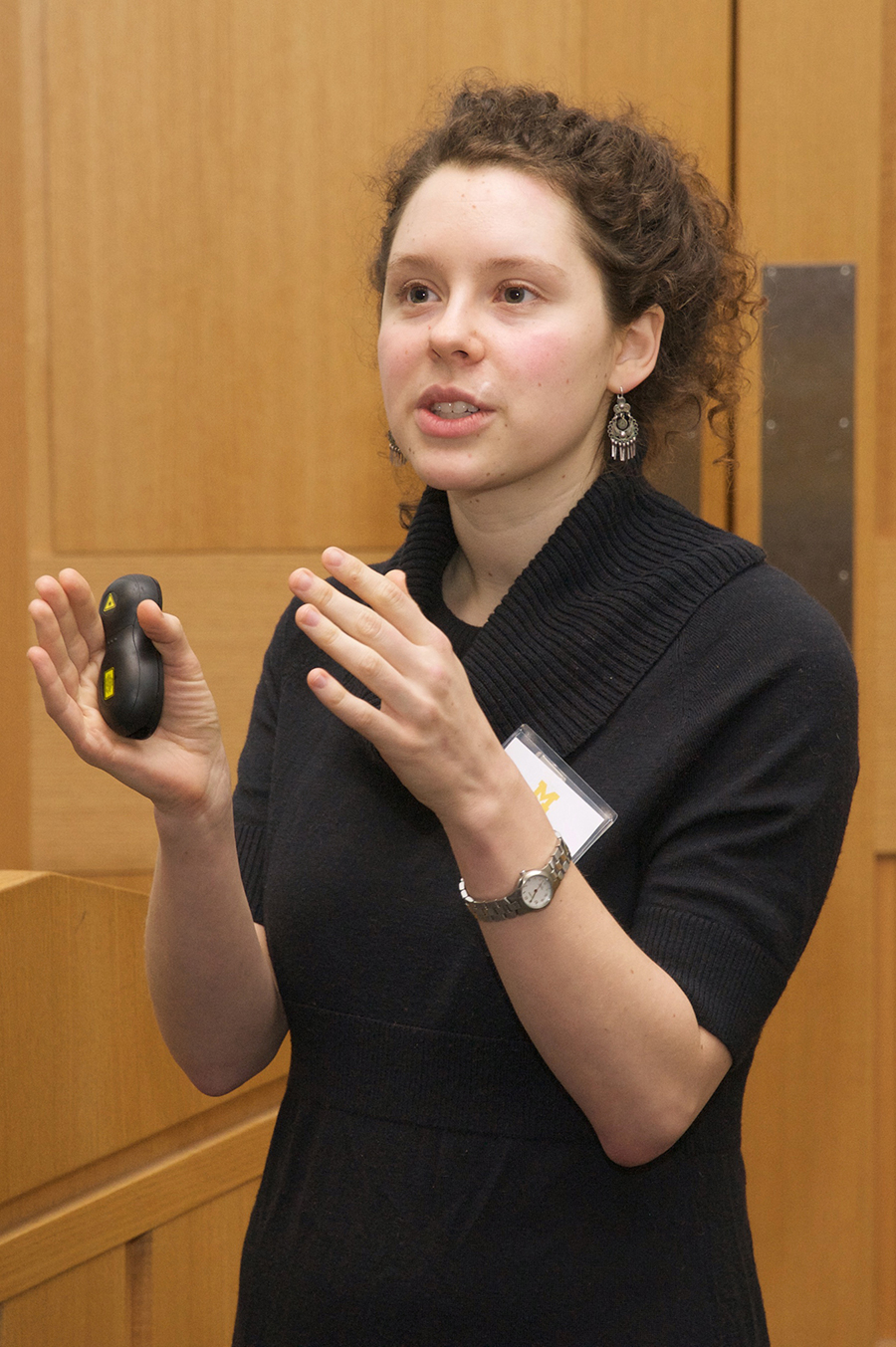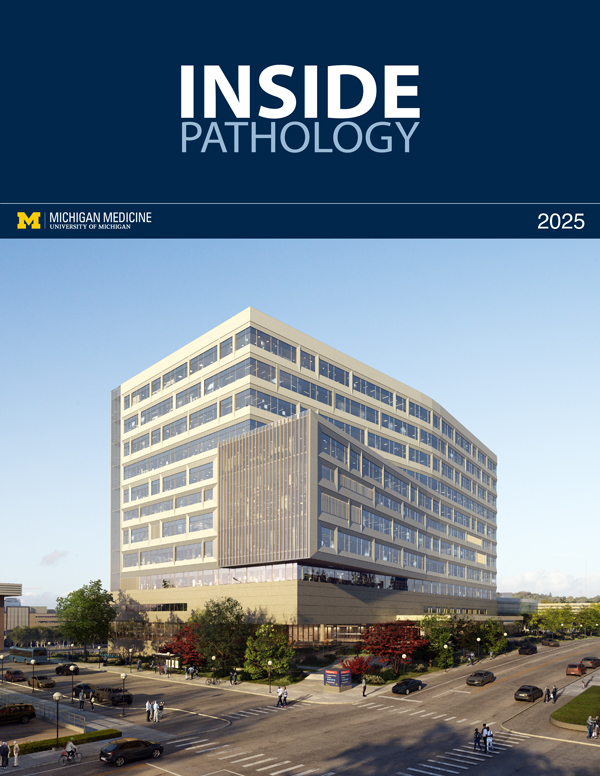Join Us in Congratulating Emmalee Adelman, PhD
By Elizabeth Walker | April 10 2018 Adelman presents at the 2016 MCP Symposium.Molecular and Cellular Pathology graduate Program student, Emmalee Adelman, successfully defended her PhD thesis on April 9. Widespread epigenetic reprogramming in aging human hematopoietic stem cells, covers her work in the lab of her mentor, Ken Figueroa, MD.
Adelman presents at the 2016 MCP Symposium.Molecular and Cellular Pathology graduate Program student, Emmalee Adelman, successfully defended her PhD thesis on April 9. Widespread epigenetic reprogramming in aging human hematopoietic stem cells, covers her work in the lab of her mentor, Ken Figueroa, MD.
Adelman’s abstract states, “At the root of the hematopoietic hierarchy reside the Janus- faced hematopoietic stem cells (HSC), capable of both self- renewal and differentiation. Aging impairs HSC function, leading to increased self-renewal, reduced homing ability and a myeloid differentiation bias. In addition, hematopoietic cells acquire somatic mutations as they age, frequently affecting epigenetic modifier genes.
In this dissertation work, I provide a comprehensive characterization of epigenomic changes during normal human HSC aging and demonstrate that aged HSCs undergo widespread reduction in H3K27ac, H3K4me1 and H3K4me3, with little change in H3K27me3. Age-associated loss of enrichment of the activating histone marks H3K27ac and H3K4me3 was particularly prominent at active enhancers and bivalent promoters, respectively.
Functional annotation of enhancers lost with age suggests that enhancer deregulation may contribute to HSC myeloid bias and the immune impairments observed in older individuals. Focal changes in DNA methylation were also observed with age, affecting WNT and cadherin associated pathways, and at regions that may predispose to leukemogenesis. DNA 5-hydroxymethylation displayed age-related gains, targeting GATA and KLF binding sites.
Concurrent with these epigenetic changes were transcriptional downregulation and mis-splicing of epigenetic modifiers, spliceosome components, transcription factors, including many in the KLF family, and LMNA, which is mutated in Hutchinson-Gilford progeria syndrome.
Finally, single-cell RNA-seq of HSCs suggests that age-related epigenetic changes of HSC are due to reprogramming rather than the expansion of a pre-existing subpopulation. Together, these results establish that multiple levels of epigenetic deregulation with age converge on key hematopoietic regulatory genes and pathways contributing to aged HSC dysfunction.”
Adelman’s doctoral committee consisted of Co-Chairs Ken Figueroa, MD and Andrew Muntean, PhD, as well as Richard Miller, MD, PhD, Ivan Maillard, MD, PhD, and Yali Dou, PhD.
In addition to publications in Cell Stem Cell and Nature, Adelman was the recipient of many awards throughout her training, including the University of Michigan Department of Pathology Outstanding Poster Award in 2016, and the American Society of Hematology, Abstract Achievement Award in both 2016 and 2017.
 ON THE COVER
ON THE COVER
 ON THE COVER
ON THE COVER
 ON THE COVER
ON THE COVER
 ON THE COVER
ON THE COVER
 ON THE COVER
ON THE COVER
 ON THE COVER
ON THE COVER
 ON THE COVER
ON THE COVER
 ON THE COVER
ON THE COVER
 ON THE COVER
ON THE COVER
 ON THE COVER
ON THE COVER
 ON THE COVER
ON THE COVER
